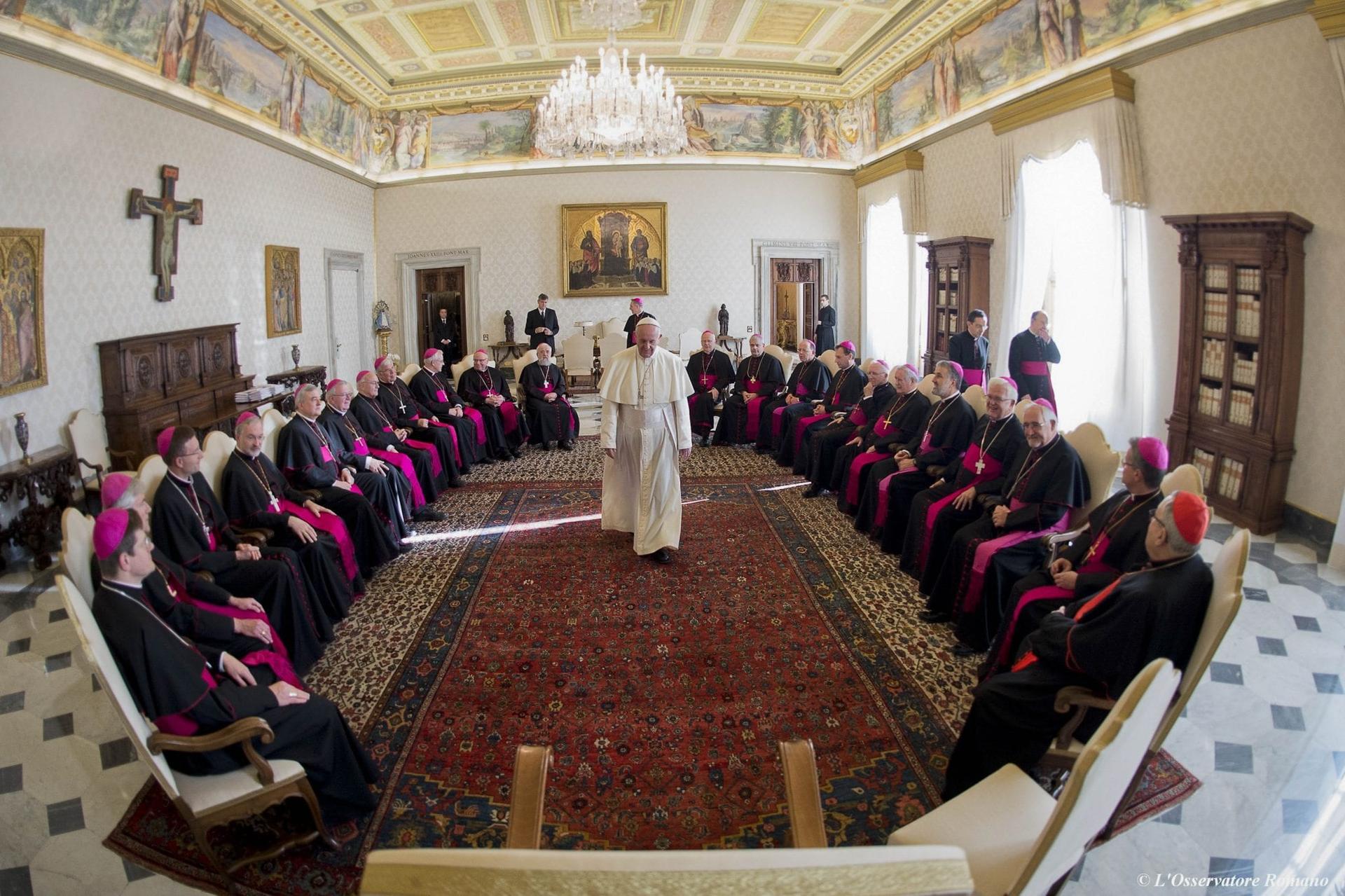ROME — In a meeting with German bishops Friday, Pope Francis warned of an “erosion” of Catholic faith in the country, highlighting trends that show the Church there is losing members at an increasing rate.
“The sacraments are approached steadily less often,” Francis said, adding that fewer people are going to confession, receiving the sacrament of confirmation, or getting married in the Church, and that vocations to priesthood and consecrated life have diminished as well.
“Given these facts, one can truly speak of an erosion of the Catholic faith in Germany,” he said, speaking to German bishops during their ad limina visit, a trip all bishops are required to make to Rome every five years.
According to its own statistics, the Catholic Church in Germany lost a greater number of faithful in 2014 than in any previous year in its recent history: 218,000 people, representing 39,000 more defections than the previous year.
That figure also exceeds the total for 2010, the year in which scandals over clerical sex abuse of minors shook the country.
Facing that decline, Francis told the German bishops that the first step in turning the situation around is to “overcome the paralyzing resignation,” and to avoid believing that they can “rebuild from the wrecks of the ‘good old days,’” calling them to a “pastoral conversion.”
Francis said that it’s important for the German church to fight the trend towards a growing institutionalization.
“We always inaugurate new facilities, from which, in the end, the faithful are missing,” he told them, asking them not to put their trust in administrative structures.
Some conservative critics have blamed the relatively liberal German hierarchy for the downward trends.
For example, American Catholic writer George Weigel recently accused the German church of “catechetical disaster and pastoral failure,” writing that the only response of the country’s bishops seemed to be “to urge others down the path that has led Catholicism in Germany into profound incoherence.”
Weigel was referring to the bishops’ approach to family life, such as proposals to loosen rules about communion for divorced and remarried Catholics, a subject of fierce debate at last month’s synod of bishops.
The pope, who did not assign blame during Friday’s talk, told the bishops to use the Holy Year of Mercy that begins on Dec. 8 to invite people to the sacrament of confession, calling it “the beginning of the transformation of each individual Christian and the reform of the Church.”
Amidst what’s been labeled the worst refugee crisis since the Second World War, Francis also asked the bishops to “continue to meet the challenge of this large number of people in need”, that is, “the hundreds of thousands of refugees who have come to Europe or have set off to seek refuge from war and persecution.”
“The Christian Churches and many individual citizens in your country are offering a great deal of assistance in the reception of these people, giving them support and making them feel welcome,” the Pope said, adding that support to all humanitarian initiatives aimed at improving the living conditions in the countries of origin is equally important.
The pontiff closed his remarks by saying that “the Church must never tire of being the advocate of life and mustn’t take a step back in the call to protect human life unconditionally, from the moment of conception to its natural death.”
Earlier this month, the German parliament passed a bill that allows assisted suicide if it is conducted with “altruistic motives,” despite strong opposition from the Catholic bishops.














